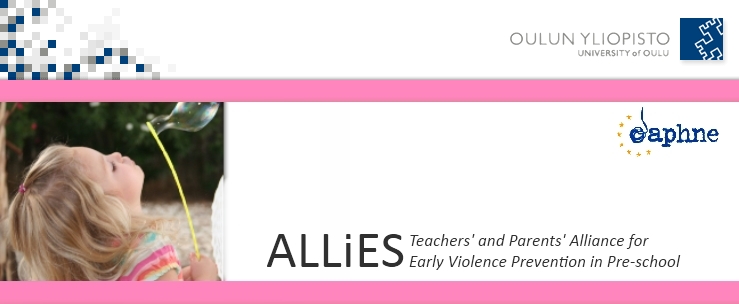
 Child Group - Periods A school year is divided into six periods, which are based on annually deepening cycles of learning social skills and making the most of the children’s potential. Pedagogical phases require awareness from staff so that the attitudes and themes of each phase can be offered to the children via action and speech of the adults; the pedagogical attitude can be seen in the ways in which an adult meets the child and gives instructions to the child. Gender sensitivity is also required from adults of the group, as well as sensitivity to and awareness of other sociocultural factors that might cause inequality among children (and among staff). Cycle of the year also includes letters to parents; the idea is not only to inform parents about each period, but also to offer tips and hints on how the themes relevant in each period could be supported at home. It would be preferable to organize a parents’ evening where the school staff and parents can develop practices for each period together, and discuss together how the themes could be best promoted at both home and school. The following section covers the letters to parents in each period. For the first period, “Discipline”, the focus is on making powerful individuals into a well-functioning group of children. So for the first period the focus is on carefully organizing every moment of the day in the classroom. The discussion at this time is largely about safety. Can the teacher leave the group for one minute, two minutes or not at all? A lot of attention is paid to the strong presence of adults at every moment of the day, and the daily schedule is planned with this in mind. The teachers agree to be good role models for all. | First period | Newsletter | Good practices |
Every child should have a sense of her/himself as an individual who does not need to constantly conform to his/her environment for her/his existence. The children should have the courage to create their own space and be active doers in their own lives, instead of passive observers. The idea is to give children the feeling of having inner boundaries that they can establish for themselves. The aim is also to make children understand that they are in control of how they behave. There is a great deal of emphasis on each individual. | Second period | Newsletter | Good Practices |
While second period concentrated on inner boundaries, the idea of third period is to offer children a feeling of having outer boundaries they can choose for themselves. To reach that goal, children need to learn:
| Third period | Newsletter | Good Practices |
The children must be set free from the prison of bad mood, where bad mood, crying and silence is a weapon to get what they want. Instead, they will learn to ask clearly for what they want. Instead of responding in the same way as the children, by nagging or even humiliating them, we teach them how to speak with honesty in a straightforward manner by being good role models. | Fourth period | Newsletter | Good Practices |
The challenges in this period are to create ethically sustainable relationships between everyone, to create a relaxed atmosphere and to enhance the children‘s desire to be physically close to one another and show concern. In this way we support the children in seeing themselves as good and caring individuals. | Fifth period | Newsletter | Good Practices |
When the 6th period begins, the school year has moved on to springtime. It is a time to enjoy with full force. This period is demanding for teachers because it allows them to go a little crazy, releasing energy by screaming in nature, walking outdoors barefoot, doing unusual things and taking a step outside of their their comfort zone. | Sixth period | Newsletter | Good Practices | |
Child group |